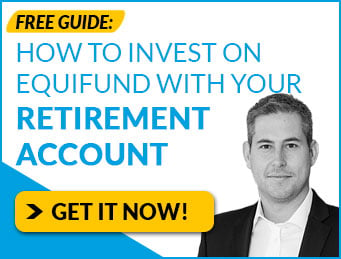As investors, there’s one question we should know the answer to before committing any funds…
No, it’s not the valuation or the deal terms (although those are important)…
The #1 thing we must understand is how we – the investor – will make money.
To answer this question, we first have to take a step back and talk about…
The difference between private markets and public markets
Most investors are familiar with the public stock markets, especially with popular trading apps like Robinhood.
In the public stock markets, investors can buy and sell shares during normal market hours.
All prices are quoted in near real time, you have additional financial information about the company, and you can know instantly what the shares are “worth.”
However, the private stock markets are different for one very important reason: There is no public market to sell your shares!
This means there is no stock ticker, no live stock quotes, and no real “updates” in terms of how the stock is doing on a day-by-day basis.
And while the shares may appreciate “on paper” as the company raises capital at higher valuations – or is otherwise valued at higher dollar amounts – the investor can’t cash-in on that appreciation until they can sell those shares to another buyer.
In the private markets, any trading is usually restricted to a small secondary market with little to no trading volume or interest.
So in exchange for not having the ability to freely buy and sell shares whenever they want, the investor usually has the chance to buy shares at a significantly lower price than they otherwise would in the public markets.
In the long term, this could lead to larger profit potential.
However, in the short term, it means your money is “locked up” until a future date when the company either goes public or is acquired – a date which may take years to come.
How do I make money in private market investment opportunities?
There are three ways you “make money” in private market deals:
- The company issues a distribution (i.e. a dividend).
- The investment pays some sort of interest payment (i.e. a bond or convertible note).
- You – the investor – sell your shares to someone else at a higher price than what you bought them for (i.e when the company goes public or is acquired).
Statistically speaking, if a private company is to have a positive exit, 90% of the time it will be sold to another company (via a “Merger” or “Acquisition”).
If this is the case, you will sell your shares to the acquirer via a “Share Purchase Agreement.”
However, if they plan on going public – or if they are already public – you will have to deposit your shares into a brokerage account before you can trade your shares in the public markets.
[Note: we’ll cover this in more detail tomorrow]
What kind of returns should I expect (and how fast)?
Think about this…
The greatest investor of all time – Warren Buffet – averaged ~20% returns per year.
If in order to reach your financial goals, you need to consistently return more than that each year across your entire investment portfolio…
You’re not investing. You’re gambling.
And if that’s more your style, you might want to head to Las Vegas and try your luck there.
With that said, we believe in setting proper expectations about what types of returns you should be targeting as an educated private market investor.
If you are looking to “invest like a venture capitalist”…
They would consider a 3-5x return over 5 years a success (across the entire portfolio of investments).
A 10x return in 5 years would be incredible. And anything above that would be legendary.
However, we recognize that most individuals aren’t interested in having their money locked up for 5-10 years the way many institutional investors can.
Generally speaking, we are looking for companies that may have an exit opportunity within 12-36 months.
How much should I invest in these deals?
By law, we cannot provide any individual advice.
And sadly, we feel many people have been misled into thinking it’s a good idea to sprinkle a bunch of small investments across hundreds of opportunities, hoping one of those investments will return 1,000x or 10,000x.
While a diversified portfolio is smart, a problem with that strategy is that for small ticket investors – because your position size is limited – the amount of time, energy, and effort required to do proper due diligence winds up making the potential upside not worth it.
That’s why it often makes more sense to do more research and invest larger position sizes in fewer deals.
Remember…
Private investing is a high-risk venture and illiquid in nature.
There is no established secondary market for the shares you purchase, and there is no guarantee there ever will be.
Please don’t invest more than you can afford to lose in any single investment, or money you will need access to in the near future.
Sincerely,
Jake Hoffberg – Publisher
Equifund













